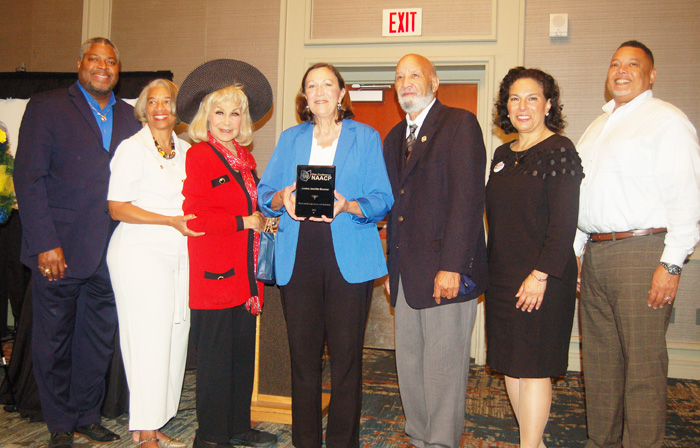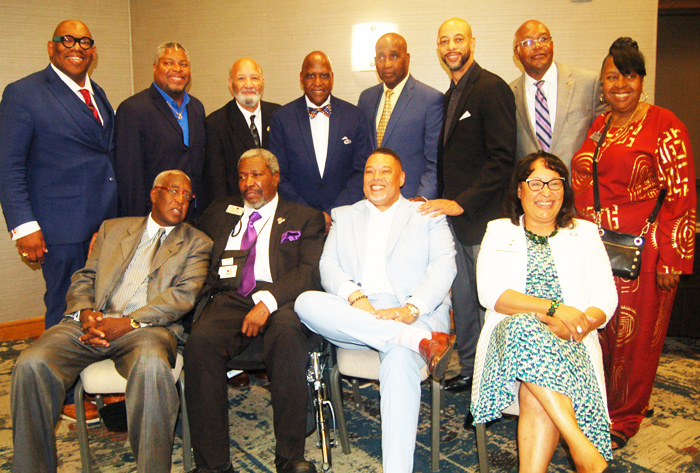
By Kathryn Mobley, The (Akron) Reporter
Special to The Truth
Black-owned media outlets have long been vibrant
threads in their communities – countering mainstream racism, educating on
social injustices and advocating for basic human rights among African
Americans. In 1843, the Palladium of Liberty (Columbus) was Ohio’s first
African American newspaper.
Fast forward almost 180 years later, African Americans now own radio,
television and cable outlets in addition to newspapers, magazines and
websites.
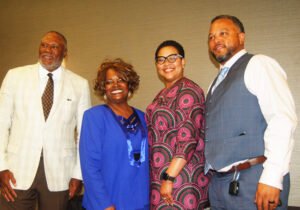
Yet, these once heavily relied upon bastions of enlightenment now struggle
to avoid financial quicksand.
For 40 years, Curtis Symonds has developed, operated and invested in
media entities. He believes one way to preserve them is for individuals and
small businesses to aggressively put some skin in the game. “Our culture
has a problem of investing in us. We look at us (Black entrepreneurs),
doing our thing, we talk about it but we won’t invest,” says Symonds. “We
have to support each other.” Something he applauds the Ohio Black Media
Collective (OBMC) for doing.
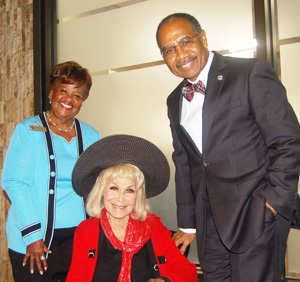
Sixteen media outlets comprise the Ohio Black Media Collective (OBMC),
including newspapers, radio and television stations. This September, the
group invited Symonds to speak at their second annual Black Press/NAACP
luncheon. It was held in conjunction with the 92nd State Convention of the
Ohio Conference of the NAACP. Representatives from sixteen cities and
counties across Ohio gathered at the Crowne Plaza in Columbus
North-Worthington for the two-day conference.
The luncheon theme was, “The Power of US– The Black Press.” Rev. Dr Mike
McNair of the Youngstown Buckeye Review was the master of ceremonies,
Walter White of the Cincinnati Herald introduced his friend and guest
speaker. Other OBMC members in attendance were Montrice Terry of the Toledo
City League, and William R. Ellis, Jr of The Reporter (Akron/Canton).
According to Symonds, it’s difficult for small media outlets to command
lucrative advertising dollars from large clients because these clients
don’t value the Black consumer. “Agencies will say: we know Black Americans
are watching more television than we do, we know their spending power is
twice as much as everybody else. But they don’t value Black Americans.
However, we must.”
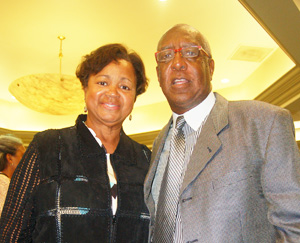
Symonds serious media journey began with ESPN in 1983 as an advertising
sales consultant. Later, he joined BET as an executive vice president of
affiliate sales. In the early 2000s, he co-founded HBCU Go TV, a broadcast
streaming site for sports, interviews and other content associated with
historically Black Colleges and Universities.
According to Symonds, he struggled to get investors. “There were some years
when I had to pump up my hustle because it was really lean,” recalls
Symonds.
He and his team gradually amassed content and gained traction on a digital
platform. In 2021, he caught the attention of media mogul Byron Allen
(Allen Media Group) and sold HBCU Go for an undisclosed amount. Symonds is
now president and his management team continues running HBCU Go. He is also
chairman of an Allen Media Group business development division.
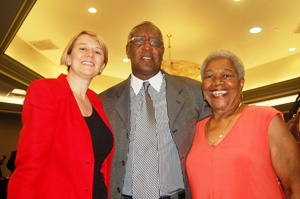
Sharon S. Gordon owns and operates Urban Trendsetters Media, a multi-media
group based in Columbus. She has an affiliate distribution partnership with
the Allen Media Group and recently added HBCU Go to her digital lineup. She
excitedly calls it a game changer. “Now every Saturday, our youth can see
Black greatness on HBCU Go for free.” Urban Trendsetters broadcasts in
Columbus, Nashville, Louisville, Baton Rouge and in New Orleans.
Symonds suggests the best way for Black media owners to thrive in this
highly competitive industry is through collaborative relationships based on
trust. “Pool our marketing dollars to buy time and space in larger markets,
share stories and deliver one message, one voice on statewide issues
impacting the Black and Brown communities,” Symonds maps out. The most
immediate issue is to promote voter registration and voting in November’s
midterm election. “In Toledo they’re saying this, in Akron they’re saying
this, and in Dayton they’re saying the same thing. It’s now in my memory,
get to that poll and register,” explains Symonds.
Gordon started her business in February 2003 and is one of a few Black
women running a media company. She echoes Symonds urging that African
Americans must value the creative and industrious talents of African
Americans. “We have to get to a point where we value going to a Morehouse
as we would going to a Stanford. We value shopping in our own designer
brands as much as we value buying a Prada purse,” proclaims Gordon. “No one
tells our story like Black Media.”
